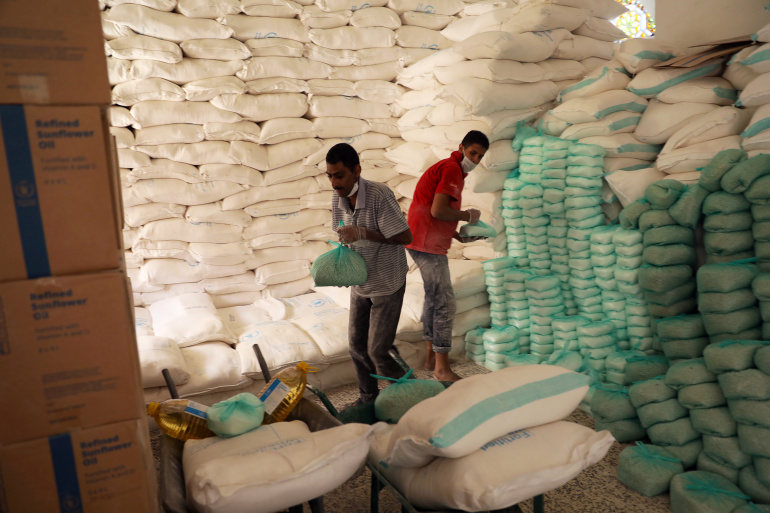The Houthis are pushing towards the gas-rich region of Marib, the government’s last stronghold in northern Yemen.
A “sound plan” for a nationwide ceasefire in Yemen has been before Houthi leadership for “a number of days”, but it appears the group is prioritising a military offensive to take Marib, the US special envoy for Yemen, Timothy Lenderking, said on Friday.
“I will return immediately when the Houthis are prepared to talk,” Lenderking told the Atlantic Council think tank after a visit to the region to revive efforts to end the six-year conflict that is widely seen as a proxy war between Saudi Arabia and Iran.
“The US and UN – we urge the Houthis to respond,” he said. “If we cannot make progress now, the country will spiral into greater conflict and instability.”
A Saudi Arabia-led military coalition intervened in Yemen in 2015 after the Iran-allied Houthi group overthrew the country’s government from the capital Sanaa. The Houthis say they are fighting a corrupt system.
“We now have a sound plan for a nationwide ceasefire with elements that would immediately address Yemen’s dire humanitarian situation directly,” Lenderking said. “That plan has been before the Houthi leadership for a number of days.”
The Houthis, however, have recently pushed towards the gas-rich region of Marib, aiming to take the government’s last stronghold in the north of Yemen. The United Nations has warned that millions of civilians are at risk.
“Tragically, and somewhat confusingly for me, it appears that the Houthis are prioritising a military campaign to take Marib … over suspending the war and moving relief to the Yemeni people,” Lenderking said.
He announced that the United States would restore humanitarian aid funding for northern Yemen, and said Washington would work with the governments of Yemen and Saudi Arabia to find a way to deliver fuel to the Yemenis who need it most.
The United Nations describes the Yemen conflict as the world’s worst humanitarian crisis.
On Thursday, Secretary-General Antonio Guterres told a high-level UN Security Council meeting organised by the US that more than 88 million people in Yemen and three dozen other countries were suffering from “acute hunger” at the end of 2020 due to conflict and instability.
 Workers stacking aid at a food distribution centre supported by the World Food Programme in Sanaa, Yemen [File: Khaled Abdullah/Reuters]
Workers stacking aid at a food distribution centre supported by the World Food Programme in Sanaa, Yemen [File: Khaled Abdullah/Reuters]
“Today, I have one simple message: if you don’t feed people, you feed conflict,” Guterres said.
“Conflict drives anger and famine, and anger and famine drive conflict. When a country or region is gripped by conflict and hunger, they become mutually reinforcing,” he said. “They cannot be resolved separately.”
Five years of conflict in Yemen have displaced four million people and left many “facing a death sentence as widespread hunger stalks their nation”, Guterres said. “Around half of all children under five – 2.3 million – are projected to face acute malnutrition in 2021. Some 16 million people face food insecurity.”
Some 80 percent of Yemenis need help, with 400,000 children below the age of five severely malnourished, according to UN data. For much of its food, the country relies on imports that have been badly disrupted over the years by all warring parties.
The people’s suffering has been worsened by an economic and currency collapse, and by the COVID-19 pandemic.





